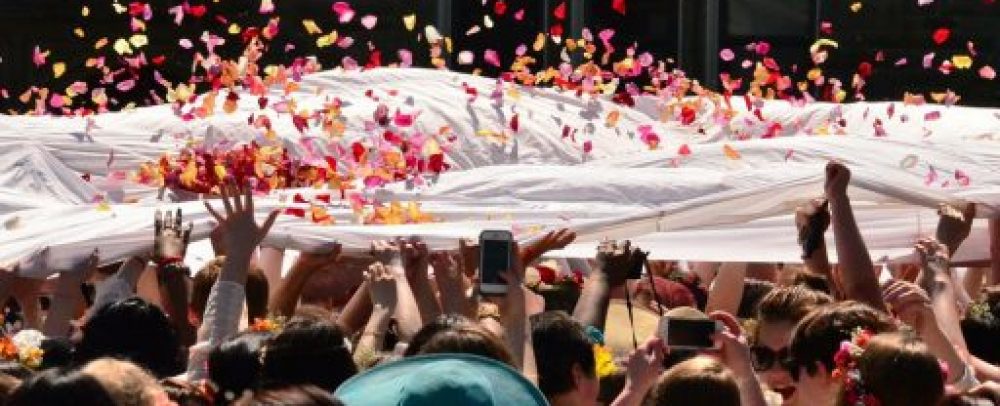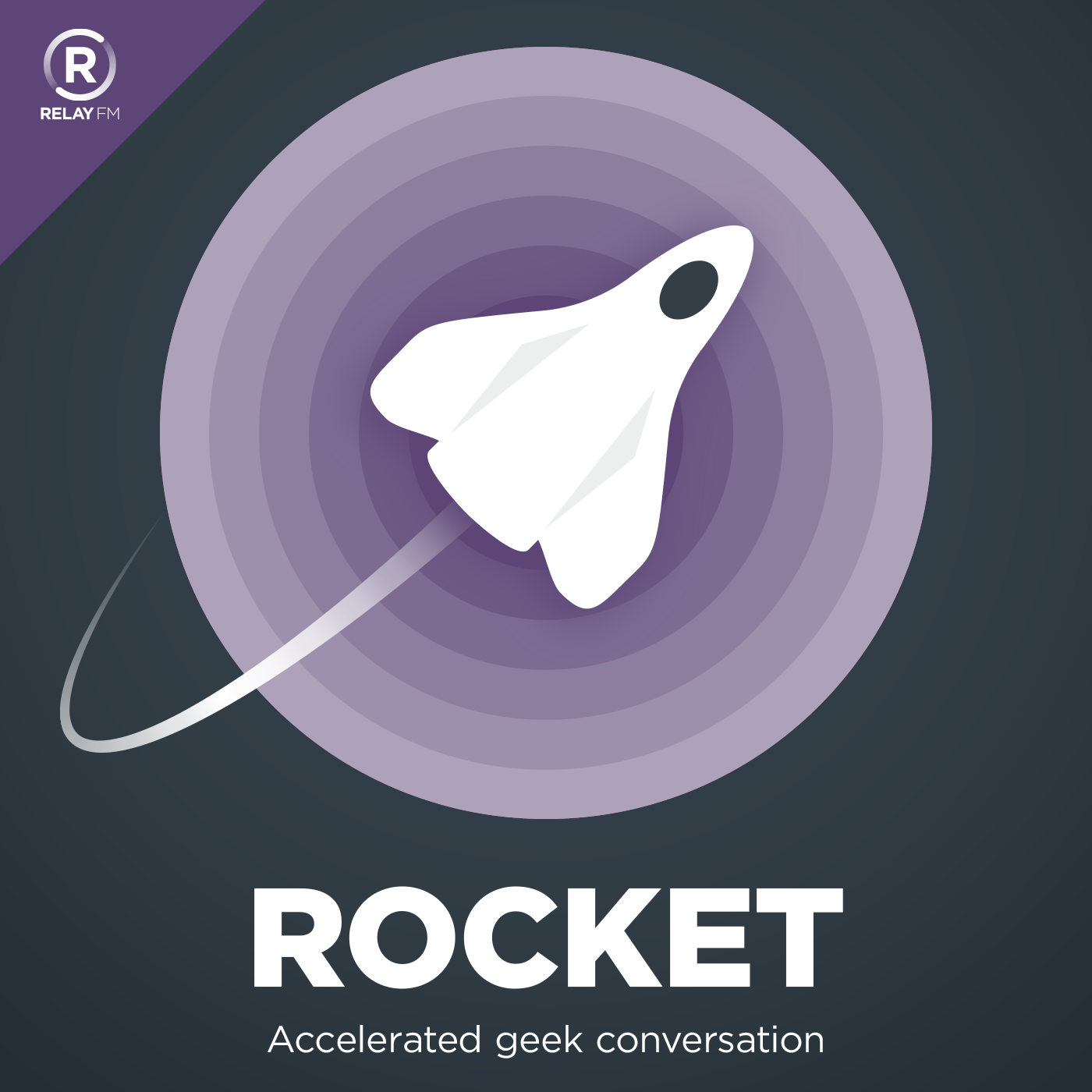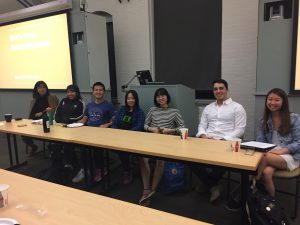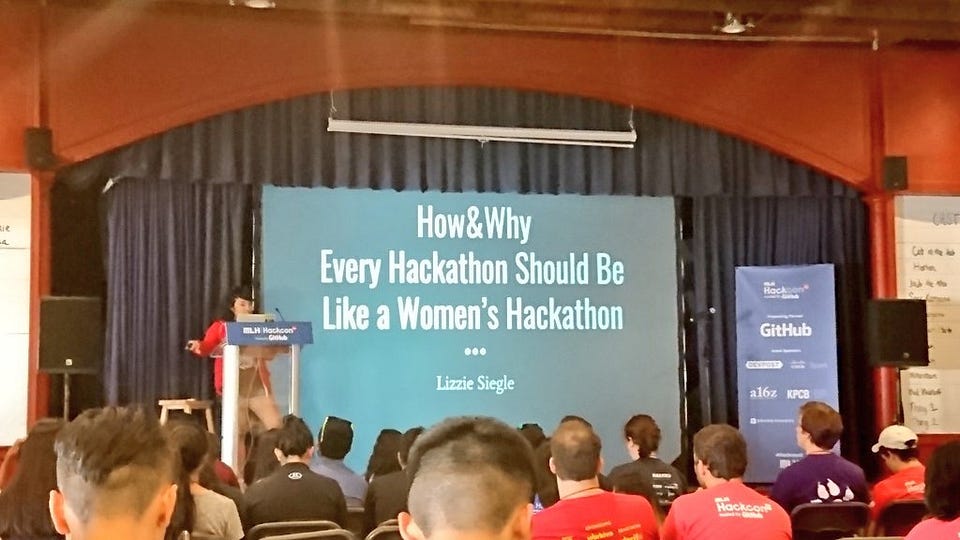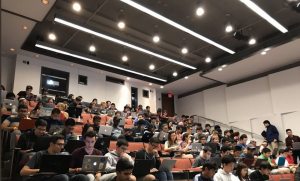My parents used to tell my twin brother and me that social media was a waste of time. However, they no longer say that because I’ve found that so many professional people (in a variety of industries) are on Twitter, making it a lucrative social media platform.
Here’s how you can optimize and build your social media presence to find jobs, scholarships, conferences, contests, workshops, online classes, and network.
- Follow people in whatever industry you’re interested in. Sure, I follow celebrities, but as a computer science major, I also follow engineers, developer evangelists (my specific career), founders, venture capitalists, and tech journalists. They occasionally share opportunities like jobs or scholarships, provide advice on their journey and life, and share relevant news and their opinions on said news.
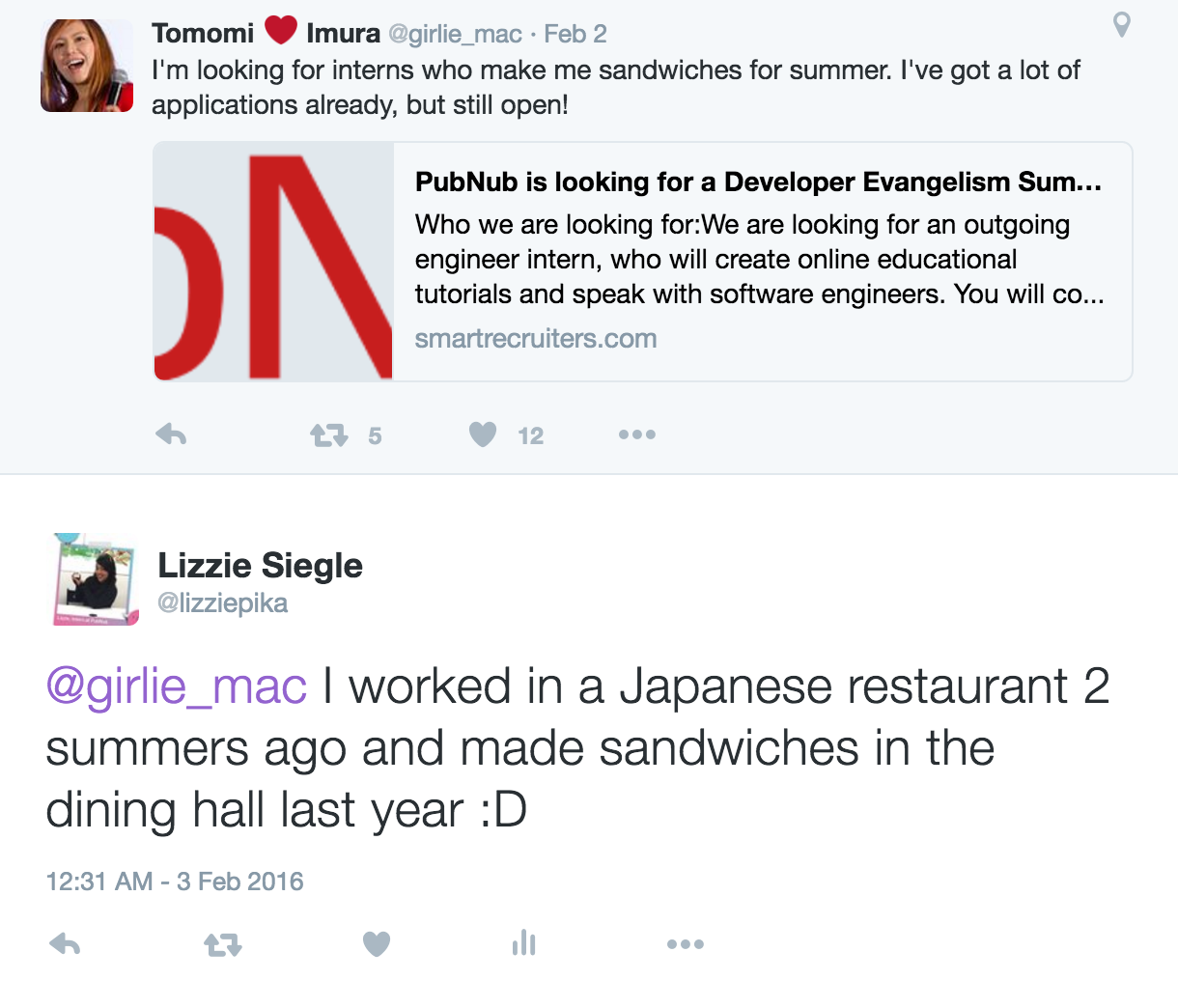
I followed my old manager and mentor Tomomi because she is an accomplished engineer and saw her tweet looking for an intern for her team. I responded, and I’m guessing it didn’t hurt my job-getting chances
- Keep your bio short and sweet. I include three things I like (with alliteration, to keep it fun), my two most recent or current jobs, my Myers-Briggs personality type (it gives more background information on me), a fun “fangirl” bit to keep it not too professional, and a link to my newsletter to help increase subscribers. I also include my current location and link to my personal website (see #3 for more on that.)
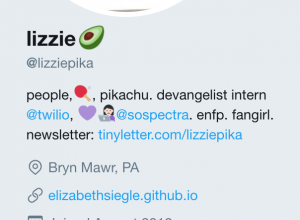
- Have a personal website that includes links to each social media platform you’re on. Websites like Weebly or About.me let you get your own site without writing any code. Most platforms like Twitter, Facebook, LinkedIn, and Instagram also let you link to your own site.

- Use the same picture and same username for each social media account. This helps people link each account to you, and, like your username, is how people recognize you. Product Hunt founder Ryan Hoover explains why he does not change his avatar here. In the left sidebar of his personal website he sums up what he does, links to his different accounts, and shares an opportunity he thinks people who follow him would like.
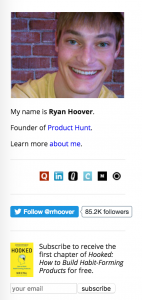
Ryan Hoover knows how to build a personal brand.
- What should you share?
 To build your brand, you should mostly share personal opinions on news and happenings, as well as opportunities your followers would like. For example, I comment on diversity in tech like the recent Google anti-diversity memo and share conferences, scholarships, and interesting tutorials. I also occasionally share what’s happening in my Bryn Mawr courses, events I’m attending, sports commentary, or funny things I hear.
To build your brand, you should mostly share personal opinions on news and happenings, as well as opportunities your followers would like. For example, I comment on diversity in tech like the recent Google anti-diversity memo and share conferences, scholarships, and interesting tutorials. I also occasionally share what’s happening in my Bryn Mawr courses, events I’m attending, sports commentary, or funny things I hear.

Share a book list, or ask for book recommendations!
This lets followers feel like they know you on a more personal level, and provides good conversation-starters.
- Start conversations. Tweet at people or comment on their pictures. I’ve learned more about software, jobs, tutorials, and books to read just by responding to what others post, and have also networked with people by later connecting with them on LinkedIn.
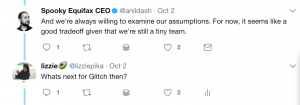
Twitter conversation with a CEO
- Meet up with people in person. I love taking online relationships offline.

I did an online tech training program and met some in-person a few months later. Of course, we took a picture and shared it.
- Use hashtags for exposure. People search hashtags of events like sports games or conferences and also trending news.
- Sell yourself! If you do something cool, share it. I share blog posts I write, like a post on how to build an app to parse basketball statistics from an Excel spreadsheet.
Questions? Comments? You can find me online here. Now go build that personal brand or get that job!
